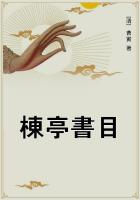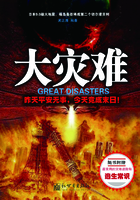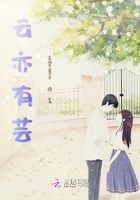IN the village of Reybuzh, just facing the church, stands a two- storeyed house with a stone foundation and an iron roof. In the lower storey the owner himself, Filip Ivanov Kashin, nicknamed Dyudya, lives with his family, and on the upper floor, where it is apt to be very hot in summer and very cold in winter, they put up government officials, merchants, or landowners, who chance to be travelling that way. Dyudya rents some bits of land, keeps a tavern on the highroad, does a trade in tar, honey, cattle, and jackdaws, and has already something like eight thousand roubles put by in the bank in the town.
His elder son, Fyodor, is head engineer in the factory, and, as the peasants say of him, he has risen so high in the world that he is quite out of reach now. Fyodor's wife, Sofya, a plain, ailing woman, lives at home at her father-in-law's. She is for ever crying, and every Sunday she goes over to the hospital for medicine. Dyudya's second son, the hunchback Alyoshka, is living at home at his father's. He has only lately been married to Varvara, whom they singled out for him from a poor family. She is a handsome young woman, smart and buxom. When officials or merchants put up at the house, they always insist on having Varvara to bring in the samovar and make their beds.
One June evening when the sun was setting and the air was full of the smell of hay, of steaming dung-heaps and new milk, a plain-looking cart drove into Dyudya's yard with three people in it: a man of about thirty in a canvas suit, beside him a little boy of seven or eight in a long black coat with big bone buttons, and on the driver's seat a young fellow in a red shirt.
The young fellow took out the horses and led them out into the street to walk them up and down a bit, while the traveller washed, said a prayer, turning towards the church, then spread a rug near the cart and sat down with the boy to supper. He ate without haste, sedately, and Dyudya, who had seen a good many travellers in his time, knew him from his manners for a businesslike man, serious and aware of his own value.
Dyudya was sitting on the step in his waistcoat without a cap on,waiting for the visitor to speak first. He was used to hearing all kinds of stories from the travellers in the evening, and he liked listening to them before going to bed. His old wife, Afanasyevna, and his daughter-in-law Sofya, were milking in the cowshed. The other daughter-in-law, Varvara, was sitting at the open window of the upper storey, eating sunflower seeds. "The little chap will be your son, I'm thinking?" Dyudya asked thetraveller.
"No; adopted. An orphan. I took him for my soul's salvation."They got into conversation. The stranger seemed to be a man fond of talking and ready of speech, and Dyudya learned from him that he was from the town, was of the tradesman class, and had a house of his own, that his name was Matvey Savitch, that he was on his way now to look at some gardens that he was renting from some German colonists, and that the boy's name was Kuzka. The evening was hot and close, no one felt inclined for sleep. When it was getting dark and pale stars began to twinkle here and there in the sky, Matvey Savitch began to tell how he had come by Kuzka. Afanasyevna and Sofya stood a little way off, listening. Kuzka had gone to the gate.
"It's a complicated story, old man," began Matvey Savitch, "and if I were to tell you all just as it happened, it would take all night and more. Ten years ago in a little house in our street, next door to me, where now there's a tallow and oil factory, there was living an old widow, Marfa Semyonovna Kapluntsev, and she had two sons: one was a guard on the railway, but the other, Vasya, who was just my own age, lived at home with his mother. Old Kapluntsev had kept five pair of horses and sent carriers all over the town; his widow had not given up the business, but managed the carriers as well as her husband had done, so that some days they would bring in as much as five roubles from their rounds.
"The young fellow, too, made a trifle on his own account. He used to breed fancy pigeons and sell them to fanciers; at times he would stand for hours on the roof, waving a broom in the air and whistling; his pigeons were right up in the clouds, but it wasn't enough for him, and he'd want them to go higher yet. Siskins and starlings, too, he used to catch, and he made cages for sale. All trifles, but, mind you, he'd pick up some tenroubles a month over such trifles. Well, as time went on, the old lady lost the use of her legs and took to her bed. In consequence of which event the house was left without a woman to look after it, and that's for all the world like a man without an eye. The old lady bestirred herself and made up her mind to marry Vasya. They called in a matchmaker at once, the women got to talking of one thing and another, and Vasya went off to have a look at the girls. He picked out Mashenka, a widow's daughter. They made up their minds without loss of time and in a week it was all settled. The girl was a little slip of a thing, seventeen, but fair-skinned and pretty-looking, and like a lady in all her ways; and a decent dowry with her, five hundred roubles, a cow, a bed. . . . Well, the old lady -- it seemed as though she had known it was coming -- three days after the wedding, departed to the Heavenly Jerusalem where is neither sickness nor sighing. The young people gave her a good funeral and began their life together. For just six months they got on splendidly, and then all of a sudden another misfortune. It never rains but it pours: Vasya was summoned to the recruiting office to draw lots for the service. He was taken, poor chap, for a soldier, and not even granted exemption. They shaved his head and packed him off to Poland. It was God's will; there was nothing to be done. When he said good-bye to his wife in the yard, he bore it all right; but as he glanced up at the hay-loft and his pigeons for the last time, he burst out crying. It was pitiful to see him.














